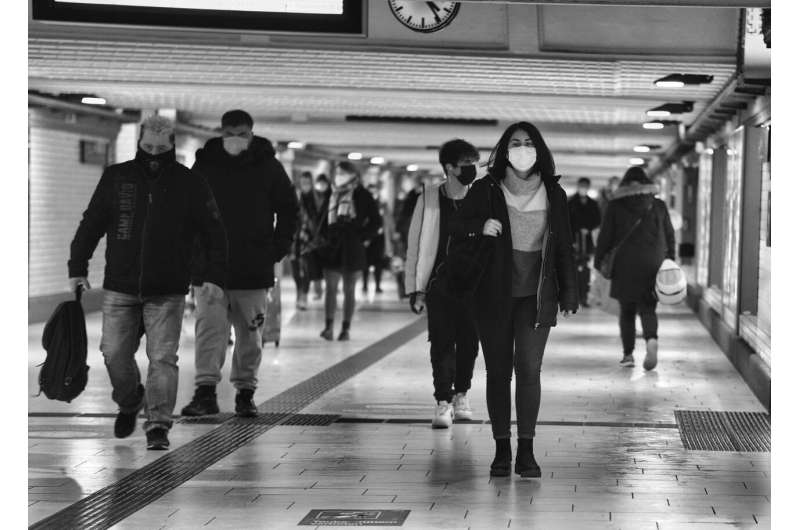Evidence of social factors impacting COVID-19 infection available to policymakers early in the pandemic

Evidence that COVID-19 disproportionately impacted racialized communities, low-income individuals and certain occupations was available to policymakers early in the pandemic, according to a rapid review of early data on the social determinants of COVID-19 infection, health service use and health outcomes.
The review, published March 31 in PLOS ONE and led by researchers from St. Michael's Hospital of Unity Health Toronto, identified over 40 studies published before the end of April 2020 that reported participant race or ethnicity, income, education, employment, housing status, food security and social isolation. The studies, conducted in China, Australia, Singapore, the United Kingdom, the United States and a group of European countries, presented early scientific evidence that reflected concerns raised by advocates and news reports of links between key social determinants of health and COVID-19 incidence and outcomes.
"We found evidence was available early in the pandemic that showed COVID-19 infection rates and outcomes were associated with race and ethnicity and socioeconomic deprivation," said Tara Upshaw, first author and a graduate student at the Upstream Lab, housed at the MAP Centre for Urban Health Solutions at St. Michael's Hospital.
The review found these findings were available early in the pandemic:
- Three large studies found statistically significant differences in COVID-19 infection incidence and hospitalization outcomes by race or ethnicity.
- Occupations such as laborers, retail staff, agricultural workers and healthcare workers were commonly represented among those infected.
- The studies reported associations between income factors and COVID-19 outcomes, and that higher socioeconomic deprivation predicted COVID-19 positive status.
The findings come as advocates call for social determinants such as housing status, employment and access to paid sick days, and neighborhood-level factors to be considered in vaccine rollout, and for groups made vulnerable by policies that create and reinforce health disparities to be prioritized.
"Subsequent studies and local evidence confirm the importance of the social determinants of COVID-19," said Dr. Andrew Pinto, senior author of the study and Director of the Upstream Lab. "This evidence, when compounded by evidence from community organizations and journalists, should have strongly informed the COVID-19 pandemic response as early as the summer. However, this evidence is still absolutely important as we tackle a third wave. It should direct ongoing efforts to contain COVID-19 and should direct the vaccine rollout. Outreach efforts around testing and access to vaccines should prioritize the groups most at risk," said Dr. Pinto, who is also a public health specialist and family physician with St. Michael's Family Health Team.
More information: Tara L. Upshaw et al. Social determinants of COVID-19 incidence and outcomes: A rapid review, PLOS ONE (2021). DOI: 10.1371/journal.pone.0248336



















